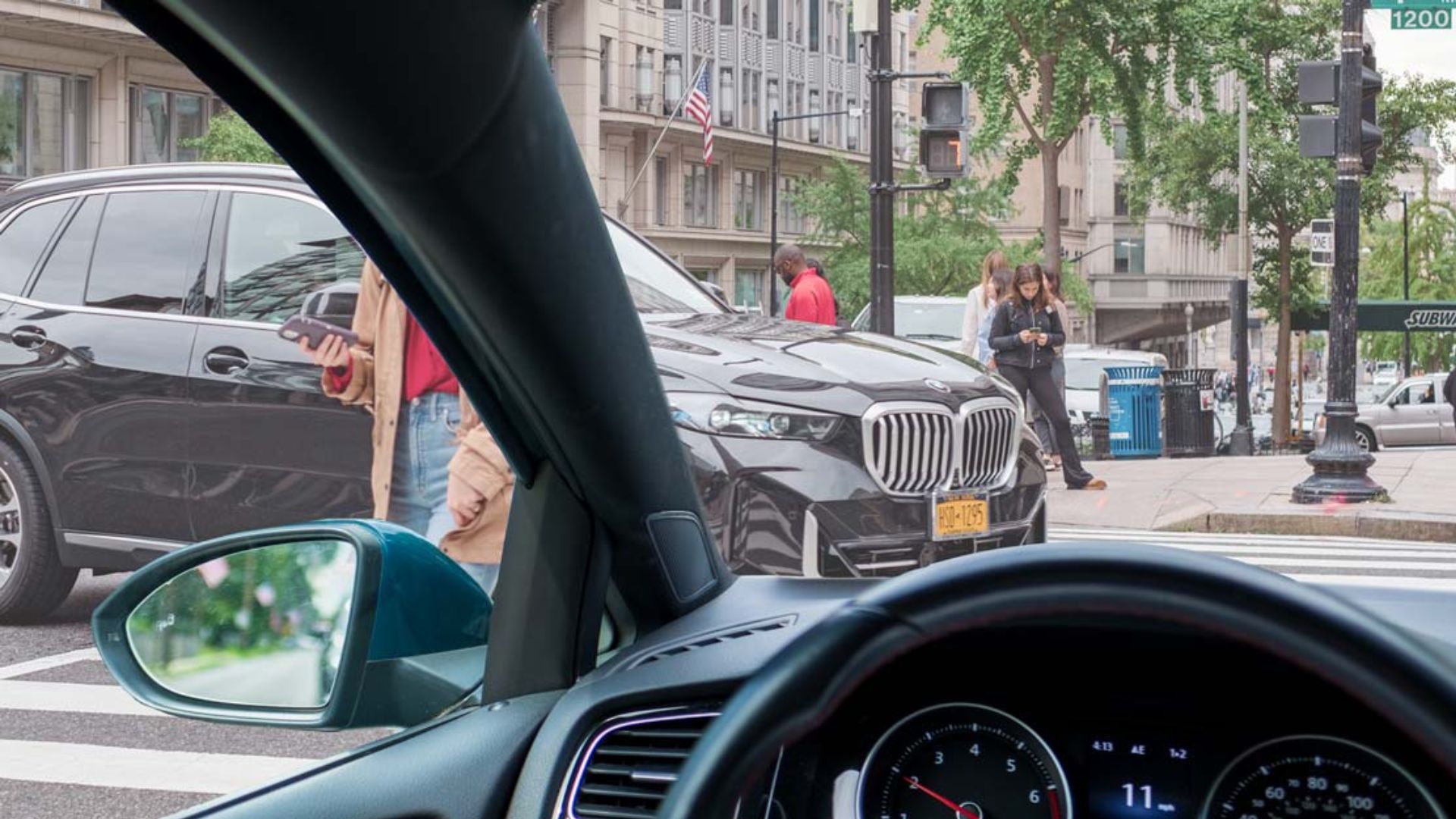The Insurance Institute for Highway Safety or IIHS is focusing on forward blind spots in modern vehicles. Armed with a new method for quickly measuring how much of a driver’s forward view is obscured, it’s in the midst of doing a large-scale study of the subject.
Ironically, high-visibility clothing can make pedestrians invisible to modern cars.
A preliminary finding concluded that over the last quarter century, trucks and SUVs have grown to obscure drivers’ views by a troubling amount. IIHS believes that may be a contributing factor to the growth in pedestrian and cyclist deaths in the US.
Among the things blocking drivers’ forward view are the hood, A-pillars, and mirrors. Obviously, you can’t just eliminate those, but there is a bit of an ironic twist.
Over the last couple of decades, IIHS has been instrumental in pushing the National Highway Traffic Safety Administration to require more stringent designs for protecting people inside vehicles.
For example, the A-pillars in modern cars, trucks, and SUVs are so thick for two main reasons. One, they have to contain side curtain airbags, something which wasn’t in many vehicles a quarter century ago.
A-pillars are also thicker thanks to roof crush tests designed to keep vehicle occupants safe in the event of a rollover. Obviously, with trucks and SUVs the overall weight is greater, so those A-pillars must be even stronger.
Neither safety standard is bad, but there are always tradeoffs. If you want side curtain airbags and roofs that don’t crush in rollovers, the A-pillars have to be thicker. That then means drivers can’t see ahead as well, so they might not see a pedestrian or cyclist and hit them.
There are many other designs related to safety, like higher beltlines or hoods that sit taller, which were created with the best of intentions but also are likely contributing to this issue of visibility.
It’s just ironic that IIHS has arguably helped create a problem it now wants to solve. What are the chances its forthcoming solution to this issue will create at least one new safety problem?
If history is any indication, the likelihood is high.
Image via IIHS

[…] to include deriver surveillance technologies in all cars. To do that, in the next few years, the organization says it will only give its highly sought after Top Safety Pick+ award to vehicles which include […]